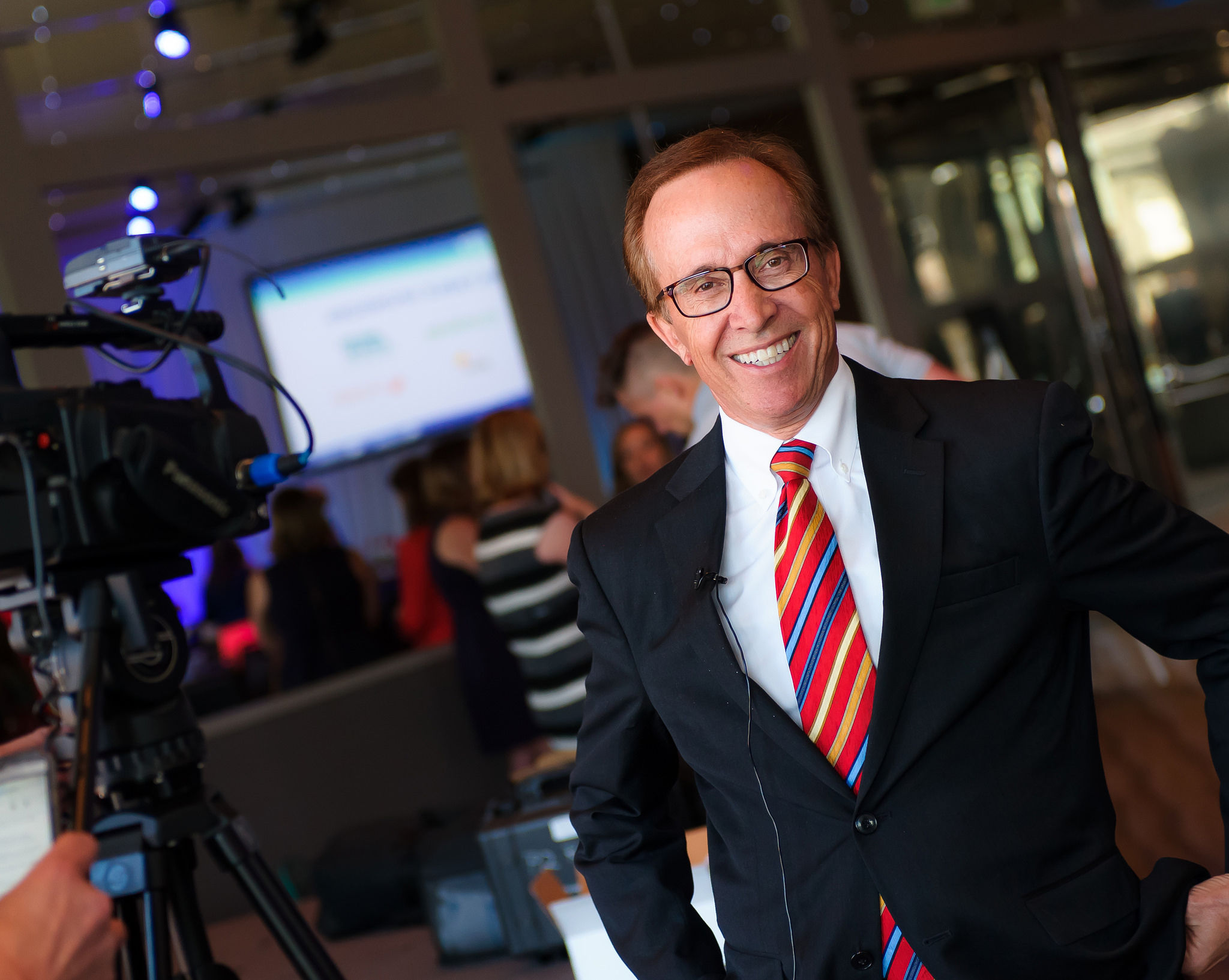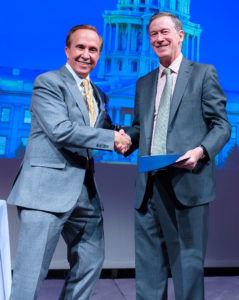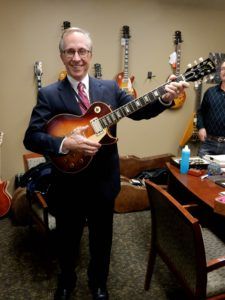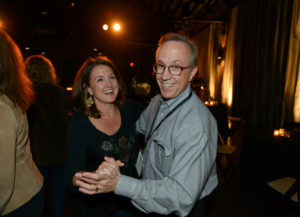
Tom Clark has never shied away from a stage.
And after more than 30 years as an economic developer who changed the trajectory of the region from one of the worst economies to one of the most successful, he’s had plenty of opportunities. But, this spring he decided it was time to “get off the stage.”
Clark, who spent more than 25 years as the Chamber’s executive vice president and CEO of its affiliate, the Metro Denver Economic Development Corporation, retired on March 31.
Retirement for Clark means more time to spend with his four grandchildren and to hit the road with his wife of 28 years, Donna Alengi, without any agenda.

He leaves a legacy that has shaped the Denver metro area, from Denver International Airport and FasTracks to policies and a collaborative spirit that have set the tone for how we do business. At the Metro Denver EDC’s annual meeting in March, Gov. John Hickenlooper announced that Clark has agreed to serve on the Colorado Economic Development Commission. It’s a full circle for Clark, who advised then-Gov. Roy Romer on how to set up such a commission and a state office of economic development.
Before Clark closed the door on his third and final tour at the Chamber, we caught up with him to talk about his career, what he’s learned and his hopes for the region as he takes a step back from a role that completely transformed it. Below are excerpts from our favorite parts of the conversation.
In high school, Clark’s career aptitude test said he’d be a social worker. Even when he tried to switch up his answers to coax a different result, he ended up with that same career. After college, he started working on a presidential campaign and then entered grad school with plans to become a city manager. It was in a labor economics class that he saw the impact economic development – growing and attracting companies – could have on an area.
He never looked back, but that test was right: “Economic development is just social work on a large scale. I’m back where I was in 10th grade.”
The credit is what matters least to Clark. That’s why he loves economic development. “There’s just incredible satisfaction, and it’s mostly because of the anonymity that makes it so fun.”
His parents taught him about fairness and standing up for others. It was after a run-in with the neighborhood bully that Clark’s mom told him, “‘Someday you’re going to have that opportunity [to be a bully] and you’re not going to be.’ I was always the kid who stood up for the underdog.”
Clark never underestimated the power of a silver lining – or a last resort. He worked in state economic development in Illinois before coming to Colorado – and he had seen the damage that could be done if municipalities fought over opportunities. It was what he saw happening in the metro area when he arrived in the 1980s to run the Greater Denver Corporation – the predecessor to the Metro Denver EDC. There were years of distrust rooted in the community, but the oil industry had gone bust and something had to change to again make the metro area’s economy viable.
He had an idea to help the entire area: “When you sucked as bad as this economy did, and you had all these pollution problems … This was the merchants saying there is no way out but to do something and to do something different … You either can get along or you can’t get along.”

Clark started by bringing together seven fellow economic developers from around the region, who would take on the moniker of the “crazy eight.” He shared what he was thinking with them and – more importantly – he asked what scared them about the idea of working as one region. It was when they shared their ideas and concerns that regionalism really began to take shape.
The other piece to regionalism was to bring in the business community. It was time, Clark said, to end the finger pointing between the private and public sectors and start working together. He needed them to invest in the idea.
“Nobody thought we could do it but they were enthusiastic … many years later they told me after I left their offices they just howled, and I mean howled, with laughter, fully confident that I was insane.” Turns out, the business community was willing to take the risk.
There are three ways to attack a recession: increase tourism, export more agricultural products and build. The Greater Denver Corporation advocated to build a new convention center, ensured the approval to construct a new airport and made an economic case for abating the infamous brown cloud that hung over the region. “All the goals that were set fourth in 1985 have been met.”
In the process, they built an integrated data lookup system – second only to the library’s catalogue. It was a meeting Clark took with a Denver Public Library librarian that started this conversation – and it was their database architects who created this system for economic developers.
Why regionalism? “Because it worked.” By 1992, five years after the regionalism agreement began, deals with companies to expand or relocate had grown to 62 percent of those they were contacted on, from 30 percent before they started working together.
“We were just trying to change one thing; in the end we changed everything.”
But, that cooperation agreement is fragile. “That fragility is born from the number one of the seven deadly sins, and that is pride. When we begin to think we have all the answers, we are doomed.”
And the business community has to continue the conversation. Clark says one of the smartest things the business community has done is to be the “first money in” to support community investment, such as FasTracks. “Engaging with government, not just standing on the outside nodding or opposing – to really be in an interactive relationship with government and elected officials – that creates a really different dynamic. You understand what drives them, what their currency is, as we call it. That makes for a very different conversation.”
The rules for doing business in the Denver metro area are simple: “Give back, be honest, work hard.”
Clark’s quote to live by: Abraham Lincoln once said, “I like to see a man proud of the place in which he lives. I like to see a man live so that his place will be proud of him.” For Clark’s part, he said: “I own the first part of that phrase, and I am proud. I hope you agree with the second.” Chamber President and CEO Kelly Brough told Clark, “this place is very proud of you. We love you.”

There are more challenges we face. Clark puts affordable workforce housing and mobility at the top of his list. “We are not just about doing jobs, we’re about helping to build a great community … You can’t build a good community if you can’t guarantee people a decent house.” When it comes to mobility that means increasing funding so that roads become “more productive, making them better, making them smarter.”
But, Tom Clark isn’t done yet. In addition to serving on the Colorado Economic Development Commission, Clark has plans continue service on community issues he’s passionate about and to publish two books and start work on a third. It’s a bittersweet farewell as he moves on to his next chapter: “I did not give my life to the Chamber or to metro Denver. The Chamber and metro Denver gave me a life.”
Sara Crocker is the Denver Metro Chamber communications manager and Business Altitude editor.
This story was originally published in the winter/spring issue of Business Altitude, click here to view the full issue.
